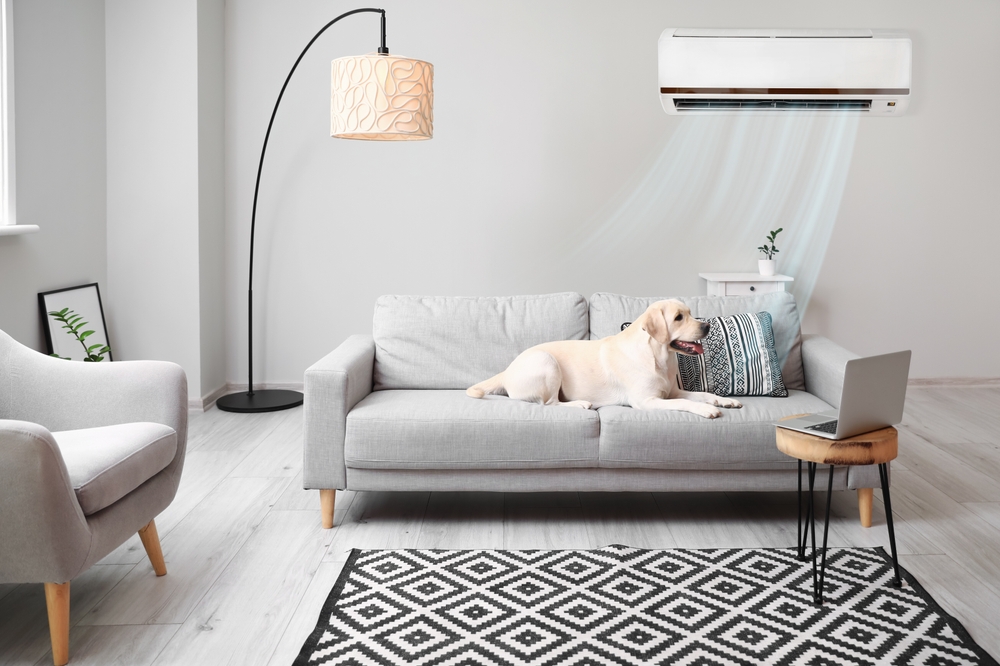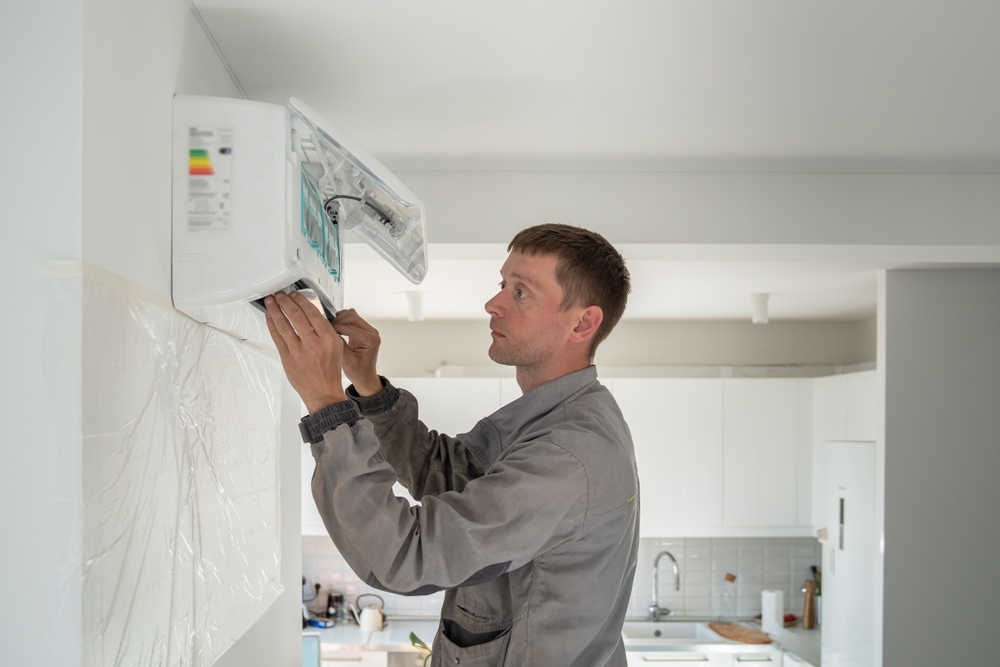
In the midst of a renovation? Need a more versatile heating and cooling system? Chances are you are considering a split system.
Split system air conditioners are by far one of the most popular options on the Australian market. With a warm Melbourne summer on the horizon, there’s no better time than now to assess your heating and cooling options and upgrade to a newer, more efficient system.
Renowned for their versatility and effectiveness, split systems combine precise temperature control with user-friendly features. However, while popular for many, they may not be suitable for all. Throughout this article, we’ll explore an extensive list of pros and cons to help you make an informed choice.
With more models and options to choose from, the advantages and benefits of split systems air conditioning continue to grow. In large part, this is due to the ever-evolving nature of the technology and innovations made by industry leading manufacturers.
Whether you’re after a versatile option for a new home, restaurant or office, here are some of the key benefits to expect.
In the realm of energy efficiency, split systems stand tall. Unlike central air conditioning systems that are designed to cool an entire space, split systems give you the flexibility to target specific zones or rooms.
This more focused approach also translates to reduced energy consumption and lower utility bills, which is a major advantage in today’s high cost of living climate. Most split systems are equipped with star ratings, a useful metric where more stars indicate a greater level of efficiency. As a result, it is much easier to gauge how much power they will use over time.
If star ratings are still a little perplexing, we’d recommend speaking with an experienced HVAC professionals. This way, you’ll know the advice is coming from a reliable source.
The installation of a split system is fairly straightforward, which makes it a cost-effective choice for both new constructions and renovations. Unlike ducted systems that need extensive ductwork, split systems only merely require enough space for the outdoor condenser and indoor unit.
This simplicity of installation is one of the reasons why they are so popular in Australian homes and businesses of various sizes. For example, they are particularly ideal for compact apartments and commercial properties.
The ability to regulate individual temperature settings for each indoor unit gives you real flexibility. From homes to offices, this function allows you to simultaneously set different temperatures for each specific zone. Whether you have kids, housemates, guests or rooms that tend to fluctuate in temperature, this setting has you well and truly covered.
With zoning technology in place, you can say goodbye to temperature-related disputes in homes and workplaces.
Split systems are renowned for their whisper-quiet operation. By placing the noisiest components outdoors (the compressor and condenser), all you’re likely to hear inside is a very low hum. Furthermore, most newer models come with intuitive night modes and other low-noise settings that allow you to relax and sleep peacefully.
The whisper-quiet nature of split systems is a major plus in any commercial setting. From restaurants to offices and retail, in-built noise reduction allows employees to work with minimal disruption, while still receiving all of the heating and cooling benefits.
At home, this also means that you watch TV, entertain guests or listen to music without any competing noise from the HVAC unit. All in all, this aspect is certainly a major reason to go with a split system air conditioner.
Split systems are equipped with air filters that diligently capture dust, allergens, and pollutants, delivering tangible benefits to those grappling with allergies or respiratory concerns. Technological innovations have resulted in even and subtle air distribution across rooms, further enhancing indoor air quality.
In the past, earlier versions of split system technology were often a double edged sword for anyone with allergies and asthma. While the relief of the air conditioning was much appreciated, it also had the ability to exacerbate these issues. Luckily, the world’s best brands have all tackled this head-on and produced cutting edge airflow technology that makes these concerns a thing of the past.
While cooling only models are available, the vast majority of split systems seamlessly switch between heating and cooling. With the simple click activation of a touch-pad thermostat, remote or smart phone app, you can instantly change the temperature to your preferred level. This adaptability makes them perfect for Melbourne and any other areas with unpredictable climates.
How does this work? A refrigerant is the magic substance that makes everything go. As soon as the temperature is adjusted, the refrigerant cycles between either cool gas or hot liquid, depending on whether you’re trying to heat or cool down the room.
In the heating and cooling world, remote controls and smart device compatibility equates to effortless temperature management. Whether you’re adjusting the temperature from the couch bed, or a tram on your way home, the convenience of a split system is tough to beat.
Another advantage of remotes and apps is the ability to switch between different modes and settings. Whether its power saving, night, auto or heating modes, the power is always in the palm tip of your hands.
Of course, like any heating or cooling systemutility, there are potential downsides. Let’s cover some of these now.
Despite the long-term cost savings, the initial purchase and installation of split systems can be relatively expensive compared to other cooling solutions. This will depend on the capacity, size and brand that you choose. Installation costs also vary from company to company.
Although the upfront costs can be substantial in certain instances, split systems are still far less expensive than ducted reverse cycle or gas. Additionally, if you invest in an efficient system, the long-term savings can offset the initial installation price.
The indoor unit of a split system is visible on walls or ceilings, which may not align with the aesthetic preferences of some homeowners. Traditionally, this was a little bit of a sticking point for some. However, in recent years, attitudes have changed as split systems become more and more common.
Even if the visual and design aspect is a concern, there are many contemporary units with sleek designs that blend seamlessly with almost any interior decor.
If you’re looking for an alternative to split systems, reach out to us today. We offer a wide range of air conditioning solutions from Bundoora to Brighton and everywhere in between.
Like all HVAC systems, split systems need regular maintenance to function at peak performance. This may involve anything from cleaning and replacing air filters, to inspecting indoor and outdoor units, and monitoring refrigerant levels. Professional maintenance every 1-2 years is recommended, incurring additional costs.
The good news on this front is that many brands offer warranty programs that help to ease the financial burden for follow-up maintenance. In fact, in order to maintain the warranty, some brands require you to schedule professional maintenance as a part of the overall deal.

While installation is generally straightforward, you must always work with experienced and licensed professionals for any installation. Subpar installation can lead to further issues, costly repairs and a below average system performance.
So, whether you’re after split systems in Essendon or split systems in Donvale, make sure to enlist the services of a trustworthy heating and cooling company. Ultimately, this will put you in the best position moving forward and help to avoid substantial repairs.
Shifting back to the positive side, technological innovations are one of the key reasons why so many Australians are investing in split system air conditioners. Among many others, both Daikin and Mitsubishi Electric are continually pushing the boundaries of innovation and product quality.
A global leader in air conditioning solutions, Daikin is known for its commitment to innovation and superior comfort. Here are some of Daikin’s noteworthy features:
Mitsubishi Electric, another industry titan, has a history of pushing the boundaries of technology in air conditioning. Some of their remarkable innovations include:
If you already own a model from either brand, Absolute Airflow are the go to providers for Daikin and Mitsubishi Air Conditioning. Reach out to us now for a Daikin air conditioner service in Melbourne.
As we’ve covered, split system air conditioners offer a wide range of advantages, including energy efficiency, precise temperature control, and improved indoor air quality. However, they do come with initial costs, maintenance obligations, and limitations on coverage. To make an informed decision, it’s essential to weigh these pros and cons against your unique needs and preferences.
If you own a home or business in Melbourne, Absolute Airflow is your trusted partner for split systems installation, maintenance and emergency repairs. Reach out to us for a free quote today!

© Copyright 2026 - Absolute Airflow - All Rights Reserved